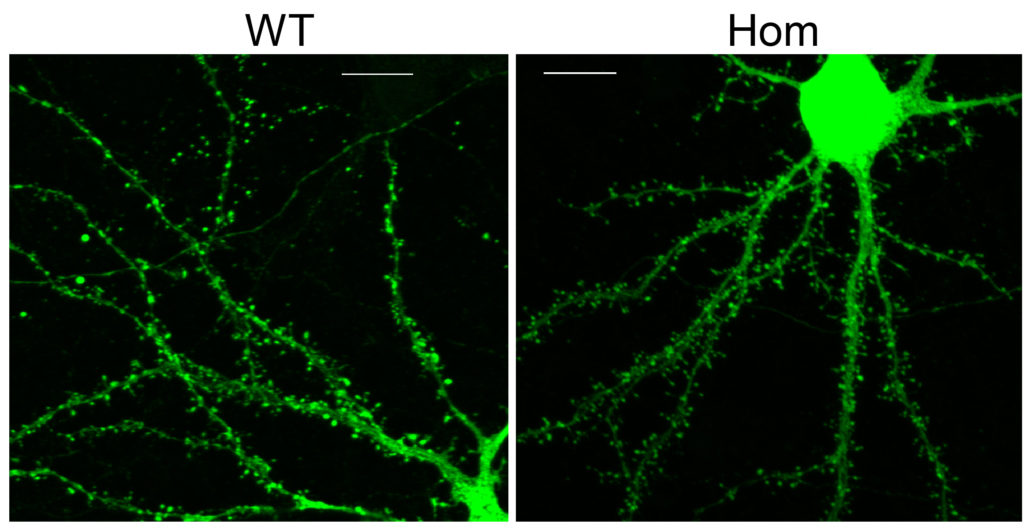
New risk factor for autism and epilepsy identified
A molecular transporter is critical for the proper maturation of neurons underlying neurodevelopmental disorders.
The KCC2 K+Cl– co-transporter is critical for the health and maturity of neurons, as it helps to maintain a low concentration of chloride ions in cells. During development, KCC2 in normal cells gradually undergoes dephosphorylation, which allows the transporter to keep intracellular chloride ion levels in check.
Japanese researchers headed by Miho Watanabe and British neurologists under Lucie Pisella independently developed new mouse models of KCC2 dephosphorylation and studied how interfering with this mechanism affected the development of young mice.
Watanabe and colleagues observed that mice with two mutations in KCC2, which blocked dephosphorylation, were susceptible to early death from respiratory failure due to abnormalities in spinal cord neurons. Pisella et al. found that young mice bearing the same mutations were more susceptible to seizures and abnormalities in signaling of the neurotransmitter GABA and showed deficits in social interaction as they aged.
Treating newborn rodents with the approved loop diuretic drug bumetanide reversed some of the abnormalities in neurons but did not prevent the emergence of social deficits. In addition to broadening scientific understanding of KCC2 and GABA in development, the new mouse models could help researchers pin down the role of KCC2 in human diseases.



 adobe.stock.com - ipopba
adobe.stock.com - ipopba BioDlink
BioDlink